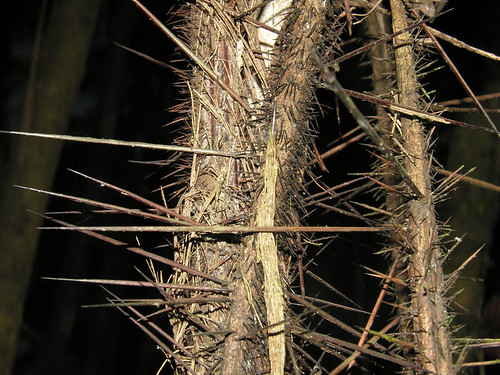
My mind is a bit cluttered. Sometimes I simply vegetate somewhere and blank it off, and sometimes I go through my mind, taking things out and examining them one by one. Sundays are good days for that.
It’s also sort of like a roundup. I have a thunderstorm playing on Youtube for ambience and the sun has crept up.
Mangoes
Maryanne posted about National Mango Day in the U.S. – and there were some interesting comments back and forth from Trinidad and Tobago, with Renard Moreau and myself representing Trinidad and Tobago in our own ways.
It really got me thinking about the different varieties of mango that I grew up with but don’t see much of anymore, even in the more rural areas. In the US, where I also understand the perspective at the market, a mango is just a mango. Growing up, though, this was not so.
I grew up with Greyham mangoes, large grafted mangoes that could count as an entire meal – even in the U.S. ‘Judy’ mangoes were about half the size. ‘Doo Doos’ mangoes were popular but I always found them annoyingly small – too much work for too little meat.
The Hog/Rose mangoes were for making mango chow – a recipe which is fairly basic that always varies a bit from person to person. Any recipe calling for chillis with the mango chow is not a mango chow recipe, I’m sorry. It could be a Thai dish, which is different, but growing up we had the scotch bonnets, the bird peppers (whose proper name I do not know) whose trees magically sprung where the birds dropped the post-digested seeds.
Anecdotally, the birds suffered a long time in Trinidad and Tobago when the government routinely sprayed malathion all over the place for mosquitoes. They have made a resurgence, all the different tanagers and thrushes and grieves, but the bird peppers never really seemed to come back. You can get them here and there, and I’m on the lookout.
‘Long’ mangoes were for cooking, for making mango talkari, as well as mango kuchela. In the ingredients for the video below, you’ll see the author specified ‘long’ mangoes, and verily, those are indeed long mangoes!
There were all these different types of mangoes, and when I listened to my elders when I was younger, they too would talk about mangoes that they could no longer get.
There are reasons some of these species don’t make it, but the main reason is because of humans. There was a time when everyone seemed to have access to a mango tree in Trinidad and Tobago, but because of people not cleaning under their trees or keeping them properly trimmed, the answer people came up with was to cut them down. Those were generally the generic rose/hog mangoes.
Then there’s the marketplace, where long mangoes and a few other species are bought en masse for foreign markets and for local companies to produce products. If you wanted to make money, having a rose/hog mango tree wasn’t of interest.
The mangoes that do make it to the American markets – not from Trinidad and Tobago, I think mainly from Mexico – have to travel well.

That lead me to a conversation I had with a Minister of Technology of St. Lucia over a Piton, circa 2005, as he explained the banana market issues that St. Lucia was having. I don’t know how it is now, but I’m fairly certain that St. Lucia’s exports are seeing severe competition from the larger land massed nations for the European markets. At the time it seemed they were being edged out, and I don’t know if they have been (yet?), but an island simply can’t compete with a nation that has much more land mass.
We like to throw around, ‘banana republic‘ a lot when we speak of some developing nations without understanding the history related to mainly Guatemala and Honduras. Even so, the banana is an interesting fruit because it needs us to propagate it, and what people see in the developing world as bananas are actually only one type of Musa. There are a thousand types of banana, but only a few are the ones that the developing nations are interested in.
I grew up knowing at least 10 types of banana in Trinidad and Tobago, now I only see maybe 2 varieties regularly. If one of you finds some ‘man-killer’ fig, I’m looking.
The then Minister told me about the color charts, the size charts, and that bananas that didn’t meet very specific criteria were thrown away, which by itself as a travesty. I remember noting the neatly kept graveyard across the road while we were drinking our Pitons and thinking what an odd coincidence that was.
What’s worse, if a supplier, like St. Lucia, didn’t meet it’s annual quota, the balance was carried over to the next year which meant that the supplier would have to produce even more bananas. Banana republic indeed. One bad year and it could mean a severe loss of income for many years as the Banana Republic plays ‘catch up’ to a quota they can’t make. Over one type of Musa.
That means more and more of the precious land on an island would be devoted to the monoculture of Musa. Why precious? Populations rarely stay the same, they have a tendency to grow because one of humanities recreational activities – indeed, the one that motivates so many things – is making more humans.
Thus, the biodiversity of an island can be wrecked even as the economy destabilizes. That’s why when people in Trinidad and Tobago say we should be growing more of our own food, even as the government takes arable land and builds houses on it, I wonder where they intend to find the land to do so. Yet the government in Trinidad and Tobago, about as archaic as the year the present Prime Minister was born (1949), doesn’t change much regardless of political party is in charge.
Jamaica had a similar incident related to coffee, where only the Constitution of Jamaica saved the land of Jamaica’s coffee farmers from being seized. I can’t find a link for it, but it was something discussed at the very table with the Minister for St. Lucia.
Growing monocultures of vegetables or fruits, a way to feed massive cities, wrecks rural areas, not unlike what coal did to the poorest regions of America.
We have a tendency to forget – and I include myself – where power comes from, where produce comes from, and how much it costs beyond economics. This is not to say that it can be done otherwise. ‘Organic farming’, as an example, requires a lot more land to produce the same amount of produce, and drug cartels are finding their own opportunities with avocados and limes.
What a strange world, where the paths to our continued stability could be the seeds of our own destruction. The bananas and mangoes must flow!
Is there anyone to blame? I don’t know that there is. We’re all born into a system, to press forward we have to work within the system, and then eventually we find faults with the systems.
Maybe we need new systems. I’m sure very smart people have had very smart meetings with lots of big words, but in the end… we want things from all over the world now. How many bananas can St. Lucia sell to balance it’s imports? How much coffee for Jamaica? Did we forget Haiti? France didn’t, that’s for sure.
I’m sure I’m not the first to wonder about this. I’m sure I won’t be the last.
There’s no call to action here, and I’m not saying anything is right or wrong. I’m just wondering what the future holds for people on both sides. Will there be banana riots in stores in the U.S. and Europe if not enough bananas are to be had? Will there be a Black Friday for avocados when the cartels withhold avocados? We see what’s happened with coal, with oil, and so on.
It’s almost too ridiculous to consider, but then I’ve been on the planet for more than 50 years and seen plenty of ridiculous. We are not that far removed from our cousins fighting over the best trees in the jungle.
It’s worth taking a few moments to think about over a cup of coffee. I have no answers, but I have a lot of questions and I think we all should.


